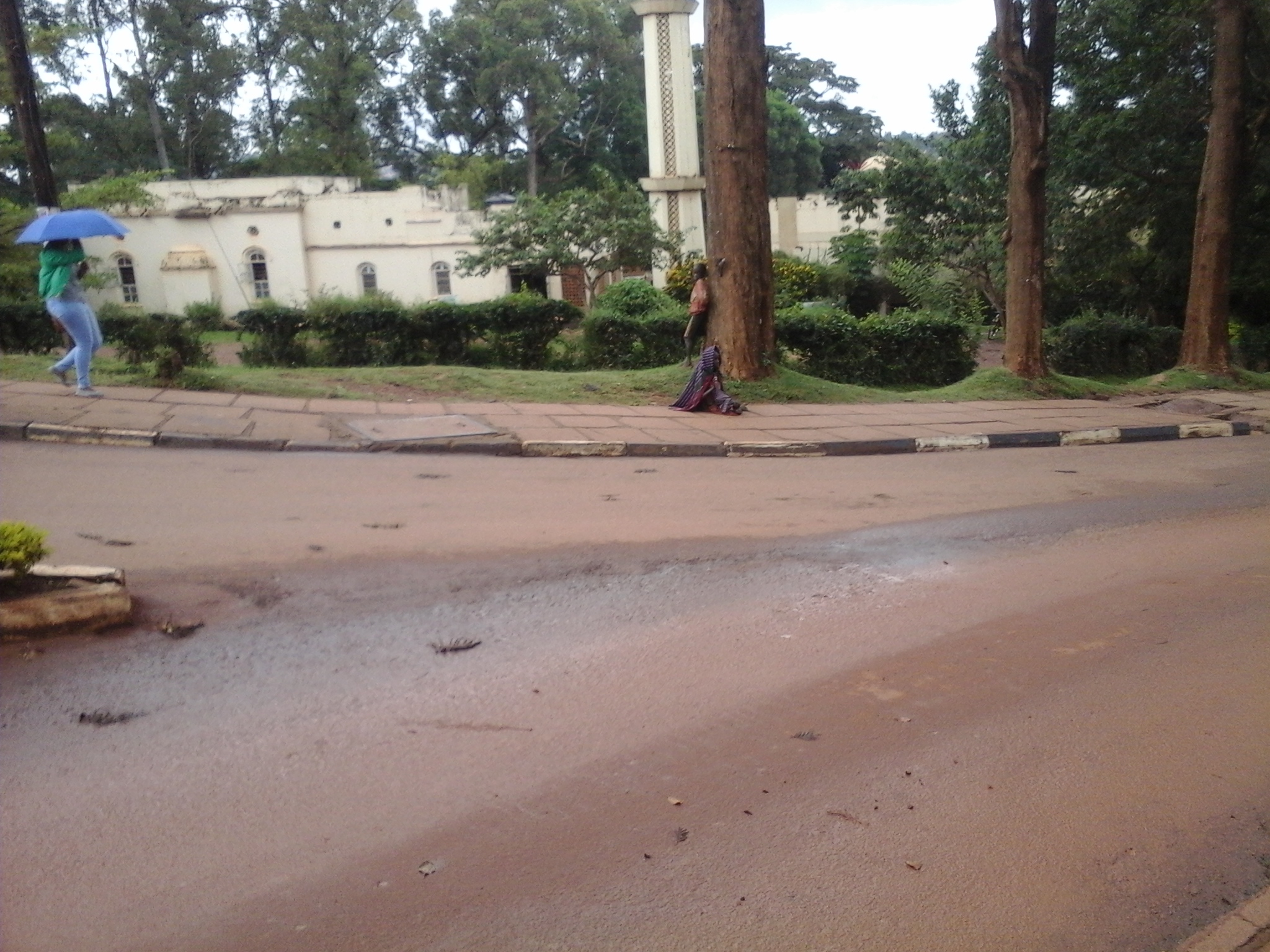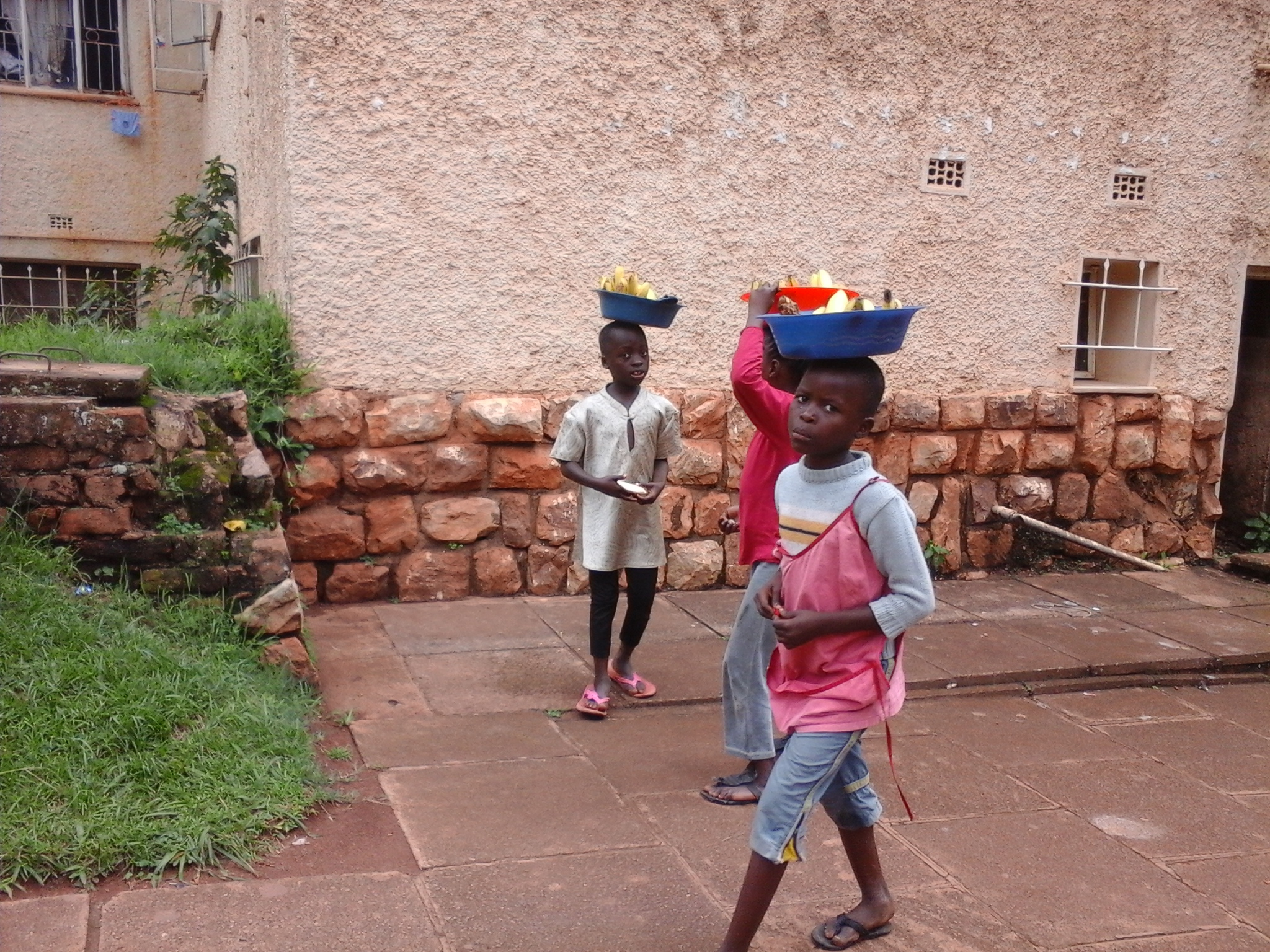On labour day as millions of Ugandans celebrated a no-work day and enjoyed the chilly weather by burying themselves in bed, a good number of people were also on the streets; for them it was business as usual. Many of these were children hawking eggs, fruits and all manner of merchandise to customers who were trying to get away from the cold as fast as they could.
The streets were also not devoid of the usual suspects, the Karamojong children, seated on the verandahs of Kampala’s buildings with their hands out, their teeth rattling as they hope passersby will find them looking pitiful enough to garner a coin or two; Which coin will be grabbed as fast as it got there by the old Karamojong women who sit in the shadows but with enough view to see what their “gold mine” has earned.

Child Labour has many faces and most of the time it’s staring us right in the face. We live in a time when child rights activism is at an all-time high, but this is closely countered by the blatant disregard for these rights.
When I was in Gulu two weeks ago, a man in my village strangled his wife to death and consequently was put behind bars. The Four children with the eldest aged 14 and the youngest 8 years, were left to fend for themselves. I spoke to a couple of people in the area who were very casual about what happens to the kids, with one elder telling me “latin omwero omak kweri” literally meaning that the eldest needs to pick a hoe for survival.
With the slow disintegration of the African values, he argues, no one is willingly going to pick up these children and add them to their burgeoning families that are living on a stressed finance envelope. In defense of his stance, he says, slowly walking away from community parenting and a drastic shift towards a more nuclear approach of family life is responsible for the reluctance of guardians picking up children other than their own these days.
Economic times are bad, he adds. There is no food, no money and the rains seem to be less than willing to wet the grounds sufficiently for food to grow. The little food they have is being ravaged by the army worm and somehow people expect for poor families to take on more children. He is also quick to add that in the days of their fore fathers, children started work early in life, and were grounded and therefore respectful of the hard work as they grew up; meanwhile millennials are just a bunch of kids expecting clean food, clothes, school fees paid for just being a child.
When I press him for what then happens to this family, he says that most likely the eldest walks away from school and starts to work as a bread-winner for his siblings. His fate will most likely be rooted in brick making, which is a lucrative work for youth and young boys in the community. He is a just a case scenario of the entrance into child labor.
According to a Lunds University Report: Child labour; the effect on child, causes and remedies to the revolving menace, Child Labour in Sub-Saharan Africa has 65.1 million children involved. Uganda’s Data from Uganda Bureau of statistics in a 2009/2010 Uganda National Household Surveys Report show that 51 percent of the children aged 5-17 years in Uganda were working and Overall, 25 percent of the children aged 5-17 years were child labourers with males (28%) having slightly higher rates than females (24%). It is further observed that Child labour was highest among children in the age group of 5-11 years (34%).
Imagine your 5-year-old who is supposed to be somewhere in kindergarten learning the alphabet and singing along to Bah Blah Black Sheep, out there frozen in the cold because the adult is not human enough to see beyond a pay-day. We are the people who go out in search of house helps who are still below 14 years.

As a mother elaborates to me how It’s better getting a younger house help who can be both a playmate to your child and still do the tasks like washing and cleaning the house, she adds that they are also very trainable and still listen to you. When I ask if she doesn’t see this as child labour, she frowns and says ”how? is the child not getting paid?”
But is the child really getting any pay?
This House help will of course be up at 5am to prepare their “Playmates” for school, running around to see that they have their breakfast on time before the dreaded van hoots. After the children leave, they are encumbered with the household duties of cooking, cleaning, washing, and before long the children are back and it’s between the children’s playtime, meals and bath time then the house help is off to bed AT 11 pm after utensils are cleaned and so on. At the end of the month, a meagre pay of 100,000 shillings is then sent to her parents, who will use it to pay fees for their most promising child; which most of the time is a boy. So then, year in and out she works for others earning little to nothing and we as society then act shocked and spell-bound when we end up with maids likes Jolly Tumuhaire.
In the 2014 Lunds University Report, Poverty is cited as the biggest driver of child labor. With Uganda’s poverty level at 19.7% (As documented by the World Bank Poverty Assessment 2016), it’s no wonder children as young as 5 years are involved in jobs like brick making, Cattle keeping, Charcoal burning, Coffee growing, Fishing ,Gold mining and so forth. With some of the sectors like fishing, coffee and gold contributing the biggest share to GDP, you would hope more is being done to arrest the growth of child labour in the country.
Government has tried especially in the area of law formation. In 2015, Uganda made a significant advancement in efforts to eliminate the worst forms of child labor. The Government introduced a bill to prohibit hazardous work for children and establish a minimum age for work of 16 years (United States DEPARTMENT OF LABOR. Bureau of International Labor Affairs). But We also know that one of the biggest problems Uganda has is the implementation of the various laws they pass left right and Centre. The issues for the lack of implementation range from lack of personnel. The few personnel they have are not trained enough to handle child labor cases and in general sense a lack of finances to do anything significant in the fight against Child labour. The same reasons will be given for the various rights violations in the country; it’s the same song on any given day.
We are not going to do away with child labour by simply wishing it away, or making remarkable speeches on its ills. We need to dig in on all fronts.
The first step is to empower communities to be able to make a living. The government has over the years had programs like The National Agricultural Advisory Services (NAADS) ,Operation Wealth Creation (OWC ) which on paper are very good strategies to empower the impoverished, but these have been riddled with corruption scandals, and the programs instead benefiting officials in charge and their kith and kin. A comprehensive review of the projects should be done to ensure the rural communities are part of these projects. This way, they have enough money and their children are then not bound to be part of the work force to feed their families.
Government has done much and yet so little with their Universal Primary Education(UPE). If parents, especially in the rural areas are convinced they are wasting their time sending their children to empty classrooms with no teachers, or to schools were the children barely learn anything, they will feel justified in putting their children to work instead of sending them to school. Government’s UPE needs to be able to provide a quality education, enough to ensure the child is proficient and knowledgeable beyond the cram work.
I realise as I interviewed people, people have a hard time distinguishing child labour is mostly regarded as a child paying dues or doing commensurate work for their age. And with poverty thrown in this mix, child labour trades on a very delicate line. More sensitization needs to be done in this area, many a parent are breaking the backs of their children under the pretext of having the child contribute towards the welfare of the family, we have seen this in sugar cane farms, gold mines and the like. The government needs to come out strongly and educate people about child labour. Given that 25% of the children aged 5-17 years were child labourers should be reason enough for government to work on a sensitisation plan.
There is the implementation of laws protecting children that needs to done more aggressively. But if history has taught us anything, this government will drag its feet in this area too. Social humanities are not a priority in government’s budget for FY 2017/2018 , because government wants to invest in more infrastructure. But if you don’t invest in your people, who will use those roads, who will go to those schools you intend to build. Who will come up with solutions to food insecurity?
For those innovative people, government preaches about, they need to start investing heavily in the children who will one day run this country, and they won’t do it by begging on the streets for adults who should know better.







